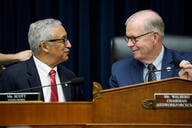You have /5 articles left.
Sign up for a free account or log in.
In February, University of Venus published a response to Nicholas Kristof’s much discussed opinion piece on academic engagement in the public sphere. Following that response, we reached out to several individuals and organizations who are working on bridging the academic/public divide and asked for their perspectives, which we will publish over the next few weeks. The first piece in the series, which we’re calling Scholars Strike Back is from Allison Kimmich, Executive Director of the National Women’s Studies Association. If you are interested in participating in this series, please contact assistant editor, Gwendolyn Beetham.
Nicholas Kristof’s appeal last month for professors to engage in today’s “great debates,” overlooks the fact that entire fields were built on those debates.
Women’s studies, for example, began with big questions about social justice. With its roots in the women’s, civil rights, and student movements of the 1960s and 1970s, the field has developed unique intellectual frameworks that teach students how power, privilege, and difference operate in society. Of course, women’s studies isn’t alone: other ethnic studies and interdisciplinary programs often take up similar “great debates.”
At the National Women's Studies Association, we continue to foster engaged pedagogy and scholarship. For example, with a grant from The Teagle Foundation NWSA conducted a two-year project that involved a national survey of women’s studies faculty and students to strengthen student engagement outside of typical classroom settings. One important finding was that students who take women’s studies courses enter with traditional ideas about civic participation—like voting—but leave with more active ones—like taking action and speaking out.
At the same time, NWSA’s research also highlights an obstacle that Kristof fails to identify. Promoting engagement is hard work, and few campuses have adequate resources to support it. For example, finding and maintaining successful relationships with community partners, training students to be effective and respectful contributors in settings outside of the classroom, and assessing students’ learning requires a complicated set of skills and infrastructure that go well beyond traditional classroom teaching.
Yet as Gwendolyn Beetham has argued, faculty who are committed to promoting engagement in the classroom and practicing it in their scholarship are rarely rewarded, and may even be penalized by tenure and promotion committees.
To that end, NWSA has produced tenure and promotion guidelines aimed at addressing the gap between stated institutional values—promoting civic engagement is frequently a core part of many college and university mission statements—and tenure and promotion practices—which typically fail to value civic engagement work in the form of pedagogy or scholarship.
We also regularly organize conference sessions that offer professional development opportunities for faculty who want to strengthen their skills as public intellectuals. For example, NWSA organized a training by The OpEd Project, which aims to increase the range of voices contributing to print and electronic opinion pages.
We recognize that many gatekeepers and decision makers in higher education will never be convinced that scholars should engage in public debates. For example, when NWSA applied to the American Council of Learned Societies for membership last year, our application was rejected because of a supposed disjuncture between public engagement and scholarship in the eyes of the admission committee. Quoting the NWSA bylaws, which stipulate that, “scholarship, activism, and teaching are inseparable elements of a single whole,” the admission committee noted the ACLS policy statement on admission says: “a society’s primary focus must be on the advancement and support of scholarship.” In other words, ACLS demands “pure” scholarship—whatever that means to them—and views our organizational commitment to public engagement as a lesser form of intellectual inquiry.
In many ways the gatekeepers at ACLS reflect the prevailing wisdom in higher education. But membership in that version of the Ivory Tower has always been mostly white, and mostly male. The rest of us are engaged in Nicholas Kristoff’s “great debates.” Kristoff, are you listening?
Allison Kimmich is Executive Director of the National Women's Studies Association




